The Scion IQ Is Dead: Here's Why
Reports last week that the Scion iQ is not long for this world came just weeks after Toyota USA issued a sales release showing that iQ volume was chopped in half in 2014.
One year earlier, Toyota’s sales report showed iQ sales falling 54% from 2012 levels.
• iQ sales decline every month
• Scion sales down 66% from 2006 high
More specifically, U.S. sales of the iQ tumbled in each of the last 24 months. Only once, in December 2012, the iQ’s first opportunity at posting a year-over-year improvement, did it do so, surging 32% compared with its first month on the market.
But the iQ was slow from the start and didn’t possess the kind of initial appeal we often see even from cars which eventually become wildly unpopular. For example, Mercedes-Benz’s Smart Fortwo generated 24,622 in its first year on the market before posting three rapid sales declines, but the iQ’s first full year in America resulted in only 8879 sales.
After the iQ’s best month – March 2012, when 1285 were sold – sales progressively decreased in each of the five following months. As the theory goes, those who really wanted one already had one. And rather unfortunately, there weren’t many who wanted one.
By the fourth-quarter of 2014, the worst ever quarter for the iQ, only 288 copies left Scion showrooms, a 58% year-over-year decline and an 86% drop compared with the fourth-quarter of 2012. In mid-January, Cars.com’s inventory listings show only 186 iQs available.
The main issues which had a negative impact on the iQ included its size, its more spacious competition, its more spacious and more affordable competition, and perhaps even the logo above its front grille. “Physics are physics,” Scion’s Doug Murtha said, “and they’re nervous about driving a vehicle that size.”
Undoubtedly, yet other tiny cars prove capable of finding greater success. The Fiat 500 was on sale nine months before the iQ, for instance, and generated more sales activity in its first ten months than the iQ has done all-time.
The Chevrolet Spark arrived eight months after the iQ. GM sold 85,674 Sparks in the nameplate’s first 30 months, nearly nine times more than the number of iQs sold in the same period.
Toyota’s own Yaris steadily became more unpopular over the last six years, but it sold nearly six times more often than the iQ over the last two years.
Yes, those cars are larger, but this isn’t Europe. The fact that the iQ is small was not to its credit in the United States. Brilliant packaging doesn’t invariably equate with sufficient space, after all.
All four of the potentially competitive cars mentioned so far are either equally affordable or distinctly less expensive. There were other knocks against the iQ. Its continuously variable transmission is poorly calibrated, rear drum brakes seem particularly antiquated when a car is charging a dimensional deficiency premium, the rear seats exist but aren’t genuinely usable, there’s very little interior storage, and fuel economy simply isn’t that impressive. At an EPA highway-rated 37 mpg, the iQ trails many compact cars.
Worst of all, the iQ was brought to America as a Scion, a brand that’s suffering as interest in their all of their products is drying up rapidly. That’s an odd trait in the current American automotive scene. U.S. consumers registered more new vehicles in 2014 than at any time since 2006. Scion sales in 2014 fell to the third-lowest full-year total in the brand’s history, down 15% year-over-year; down 66% compared with 2006.
Would the iQ have been a hit if it was a Toyota? No. But would it have flopped this hard if they’d made it a Toyota instead? No.
The iQ was an experiment, but it certainly wasn’t a brand-saving day in the laboratory.
Timothy Cain is the founder of GoodCarBadCar.net, which obsesses over the free and frequent publication of U.S. and Canadian auto sales figures.
More by Timothy Cain
Latest Car Reviews
Read moreLatest Product Reviews
Read moreRecent Comments
- Jkross22 I'd imagine there's a booming business available for EV station repair.
- JLGOLDEN Enormous competition is working against any brand in the fight for "luxury" validation. It gets murky for Cadillac's image when Chevy, Buick, and GMC models keep moving up the luxury features (and price) scale. I think Cadillac needs more consistency with square, crisp designs...even at the expense of aerodynamics and optimized efficiency. Reintroduce names such as DeVille, Seville, El Dorado if you want to create a stir.
- ClipTheApex I don't understand all of the negativity from folks on this forum regarding Europeans. Having visited the EU multiple times across different countries, I find they are very much like us in North America-- not as different as politicians like to present them. They all aren't liberal "weenies." They are very much like you and me. Unless you've travelled there and engaged with them, it's easy to digest and repeat what we hear. I wish more Americans would travel abroad. When they return, they will have a different view of America. We are not as perfect or special as we like to believe. And no, many Europeans don't look up to America. Quite the opposite, actually.
- Dwford Let's face it, Cadillac is planning minimal investment in the current ICE products. Their plan is to muddle through until the transition to full EV is complete. The best you are going to get is one more generation of ICE vehicles built on the existing platforms. What should Cadillac do going forward? No more vehicles under $50k. No more compact vehicles. Rely on Buick for that. Many people here mention Genesis. Genesis doesn't sell a small sedan, and they don't sell a small crossover. They sell midsize and above. So should Cadillac.
- EBFlex Sorry BP. They aren’t any gaps




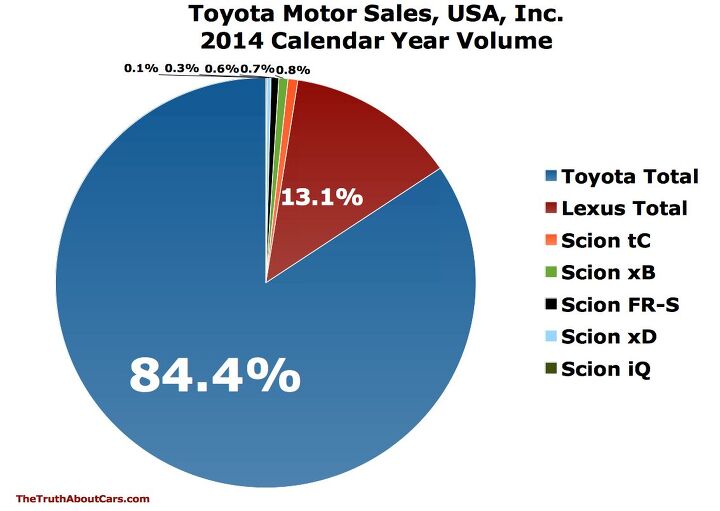















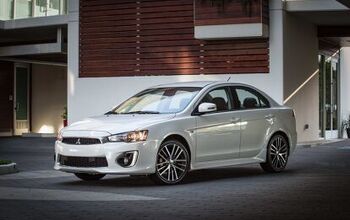
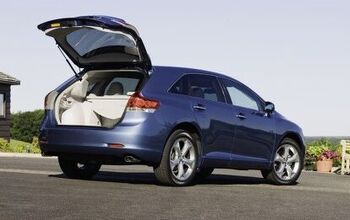
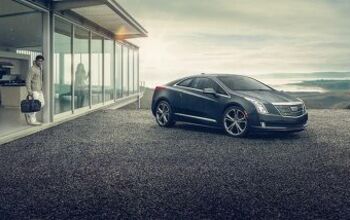
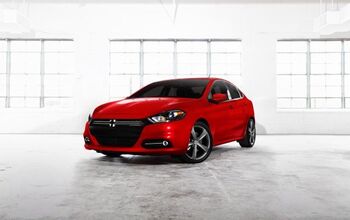
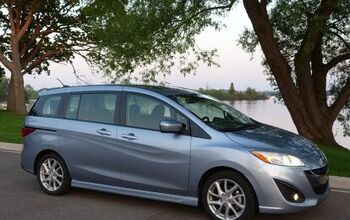








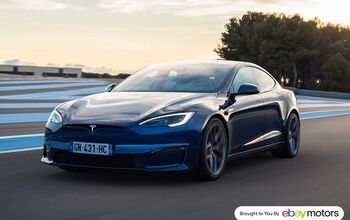

Comments
Join the conversation
The Scion iQ is dead: Here's why Nobody anywhere bought them as Scions or Toyotas because it answered a question nobody asked and looked awkward doing it, had weird seating and a very high price, with a none too deluxe interior, despite Toyota calling it a premium vehicle. A sales dud. Aston Martin, who made the Cygnet based on it dropped it in 2013, saying Toyota was dropping the iQ at the end of 2014. Toyota swore up and down that Aston had it wrong, but, they lied. And here's the proof.
Embarrassingly enough, I had looked at an iQ a few days ago as a sort of commuter car (since I only commute about 5 and a half miles to work). Toyota dealer is asking 12 for it. Its passive interest. The sales person has literally been on me every single day calling trying to get me to buy it. I guess they are even trying to get rid of the used ones fast.